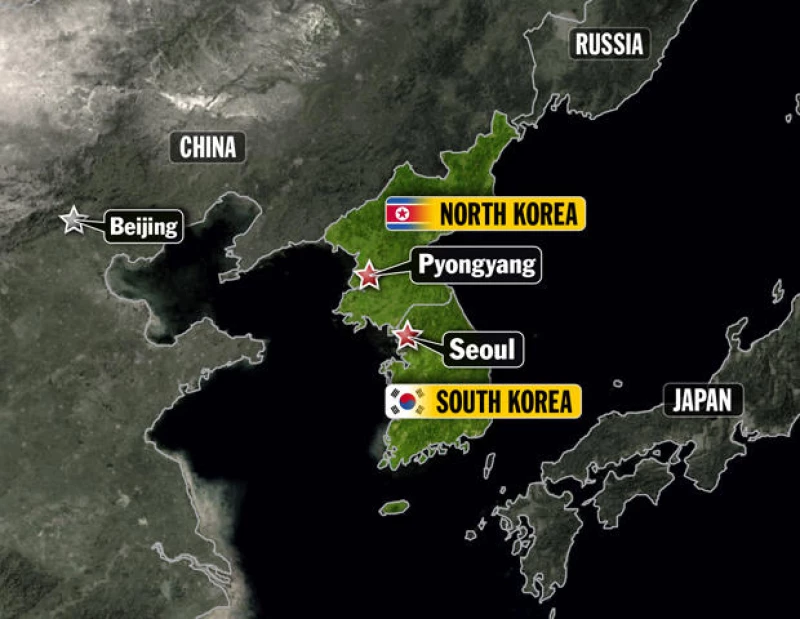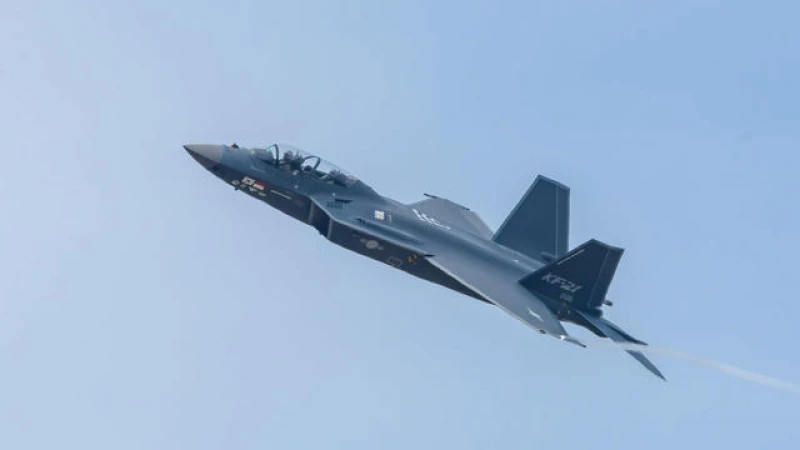South Korea Scrambles Fighter Jets as Chinese and Russian Military Planes Enter Air Defense Zone
Seoul - South Korea's military announced on Thursday that it had scrambled fighter jets in response to the entry of two Chinese and four Russian military planes into its air defense zone. The incident occurred in the Korea Air Defense Identification Zone (KADIZ) in the East Sea, also known as the Sea of Japan, for a duration of approximately 20 minutes around midday local time, according to Seoul's Joint Chiefs of Staff.
The joint chiefs clarified that there was no invasion of airspace and that the South Korean military had identified the planes before they entered the KADIZ. In anticipation of any potential contingencies, the air force deployed fighter jets to take tactical measures.
An air defense identification zone is a broader area than a country's airspace and is established for security reasons. However, this concept is not defined by any international treaty.

China's foreign ministry spokeswoman, Mao Ning, dismissed the incident as "a routine flight activity" during a regular press briefing. She stated that the Chinese military aircraft were conducting flights above international waters, which she deemed understandable and in accordance with international law.
China and Russia's Growing Ties Raise Concerns
China and Russia have long been allies of North Korea, which has raised concerns in Washington about the military ties between Pyongyang and Moscow. The United States, urging Beijing to exert its influence over North Korea as its largest economic benefactor, has called for restraint.
The flourishing ties between Russia and China have also become a cause for concern in the West. China's refusal to condemn Russia's invasion of Ukraine and the recent visit of Russia's foreign minister, Sergey Lavrov, to Beijing, where they discussed the creation of a new "democratic world order," have raised eyebrows.
Last week, U.S. National Security Advisor Jake Sullivan announced that the United States, along with its allies Seoul and Tokyo, would stand up for stability in the Taiwan Strait, a sensitive waterway that separates Taiwan from China. The three allies also reiterated their commitment to freedom of navigation in the disputed South China Sea.
- China says jets shadowed "trespassing" U.S. Navy spy plane over Taiwan Strait
In recent years, China has increased military and political pressures on democratic Taiwan, which it claims as its territory. In response, Washington and its Western allies have conducted more "freedom of navigation" crossings by naval vessels in both the Taiwan Strait and the South China Sea, further straining relations with Beijing.
A recent event has raised concerns about the relationship between North Korea and Russia. It has been reported that North Korea successfully launched a military spy satellite into orbit, with assistance from Moscow. In exchange for this help, North Korea allegedly supplied Russia with weapons for its ongoing conflict in Ukraine. This exchange has further strained the already tense situation on the Korean Peninsula.
During a visit to Russia in September, North Korean leader Kim Jong Un assured President Vladimir Putin of his country's "full and unconditional support" in defending Russian security interests. This support is believed to include cooperation on various military technologies, such as nuclear-powered submarines and advanced rockets and satellites.
The satellite launch has led to a fracture in an inter-Korean military agreement that was aimed at reducing tensions on the peninsula. Both North and South Korea have increased their security measures along the demilitarized zone between them.
This event is not the first time that tensions have risen due to military activities in the region. In June, South Korea deployed fighter jets in response to joint air force patrols conducted by China and Russia over the Sea of Japan and the East China Sea. In November of last year, Moscow and Beijing's military jets entered and exited Seoul's airspace, prompting South Korea to scramble its own fighter jets.
It is important to note that in all of these incidents, no country violated South Korea's airspace. However, these events highlight the growing military presence and cooperation between North Korea, Russia, and China, which has the potential to further destabilize the region.







